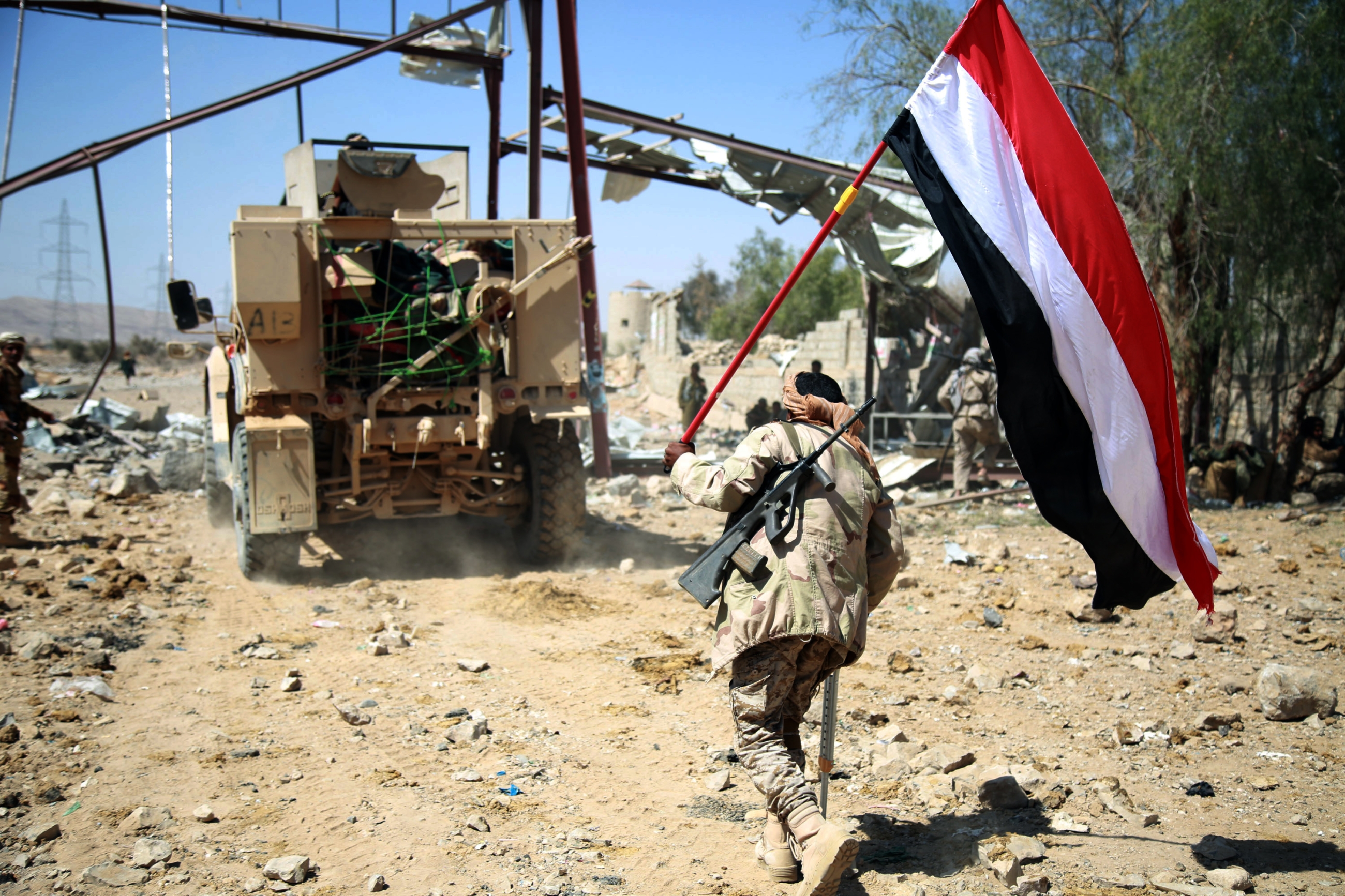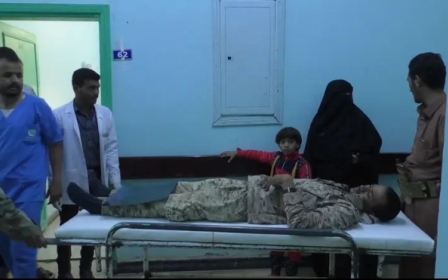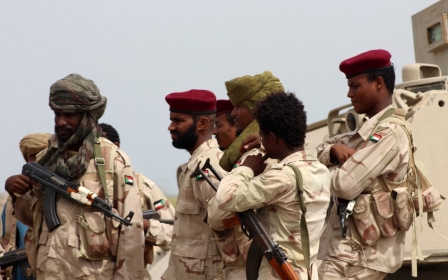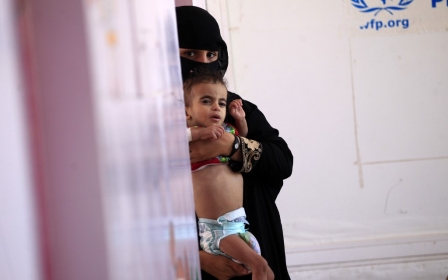Fighting escalates in Yemen since Houthi mosque attack

Fighting between Saudi-backed forces loyal to internationally recognised president Abd Rabbuh Mansour Hadi and the Houthis near Sanaa, Yemen's capital, has intensified after a Houthi air strike on a mosque killed more than 100 people in Marib last week.
Hadi loyalists say they have made advances in the district of Nehm, which lies just 60km to the northeast of Sanaa, a claim that has been rejected by the Houthis, who hold the capital city.
The fighting has escalated to the point that Hadi loyalists are considering pulling out of the UN-sponsored Stockholm agreement, which halted military operations in the key port of Hodeidah, easing a blockade that led to widespread famine and a cholera outbreak.
Fighting broke out on 16 January as pro-Hadi forces advanced on Nehm, backed with air support from the Saudi-led coalition, which rights groups say had been responsible for thousands of civilian deaths.
The clashes have forced families to flee and wounded dozens, according to reports, as violence returned to the district after nearly a year of relative calm.
Nehm is considered to be a strategic gateway to Sanaa, which was captured by the Iran-alligned Houthis in 2014, leading to a war that has killed over 100,000 people and created one of the world's worst humanitarian crisis.
The fighting intensified after a Houthi missile attack on a mosque inside a military base in the central province of Marib killed at least 116 Yemeni government troops last weekend.
Abdulrazaq, a pro-Hadi fighter, told Middle East Eye: "After the Houthis attacked the mosque and killed more than 100 soldiers, our leadership was convinced that there is no solution but to attack the Houthis fiercely."
The operation originated in the city of Marib, which in recent months has become a pro-Hadi stronghold where pro-Hadi groups from northern and southern Yemen have coalesced, settling their differences and vowing to fight the Houthis.
Mostly controlled by Islah (Muslim Brotherhood), which has opposed the Houthis, the city has become a haven for soldiers fleeing infighting between Saudi and UAE-backed groups, as well as others escaping a Houthi onslaught in which they claimed to have killed or captured more than 2,000 soldiers in August. The city lies 120km east of Sanaa.
After the Houthis attacked the mosque and killed more than 100 soldiers, our leadership was convinced that there is no solution but to attack the Houthis fiercely
-Abdulrazaq, pro-Hadi soldier
Abdulrazaq, who fled to Marib in August after members of his unit deployed to the border with Saudi Arabia were captured by the Houthis, told Middle East Eye that pro-Hadi fighters in the city had been pushing to launch an operation to take Sanaa for months.
"We have been insisting on the leadership to allow us to launch an attack on the Houthis in Sanaa's Nehm district and finally they agreed last week," he said.
"If we take over Sanaa, the other provinces will be captured easily."
'Huge advance'
Abdu Abdullah Magli, spokesman for the Yemeni Armed Forces, said on Wednesday that the army had broken through Houthi defences and was advancing towards the district of Arhab, north of Sanaa.
For their part, the Houthis have rejected claims by pro-Hadi forces that they have penetrated into Nehm, but admitted they were facing a "huge advance" of pro-Hadi forces.
The spokesperson of the Houthis, army brigadier Yahiya Sarie, tweeted on 17 January: "The heroes of the army and the Popular Committees [militias] confronted huge advance of the aggressive forces in Nehm."
A Houthi leader in Sanaa accused Hadi loyalists of spreading misinformation about their advances.
"The media outlets of mercenaries [pro-Hadi media] used to talk about false victories, and by the end of the battle the truth emerges and the people realise that these were really the lies of mercenaries.
"Ansarallah [the Houthis] are patient, and they do not talk about advances officially until the end of the battle, so they do not talk about Nehm nowadays."
MEE has not been able to independently verify whether advances have been made by either side.
'No solution but force'
The escalation has prompted both sides to blame each other for putting an end to peace efforts. Signed by the warring parties in 2018, the Stockholm agreement was largely viewed as a step towards a final settlement.
But Foreign Affairs Minister Mohamed al-Hadhrami has now called into question the agreement itself, threatening to pull out.
"The Houthi militias are the only [party] responsible for the collapse of peace efforts and the failure of Stockholm agreement,” he said last week.
In light of this escalation, we no longer see a real point in the Hodeidah agreement
-Foreign Affairs Minister Mohamed al-Hadhrami
He added through the Twitter account of the ministry: "In light of this escalation, we no longer see a real point in the Hodeidah [Stockholm] agreement."
Ared al-Adimi, a pro-Houthi leader, said that the agreement had failed and that there was now "no solution but force".
"The escalation in Nehm and the violation of the Stockholm agreement is enough to resume fighting them, and we will do that until the liberation of the whole country."
Middle East Eye delivers independent and unrivalled coverage and analysis of the Middle East, North Africa and beyond. To learn more about republishing this content and the associated fees, please fill out this form. More about MEE can be found here.




